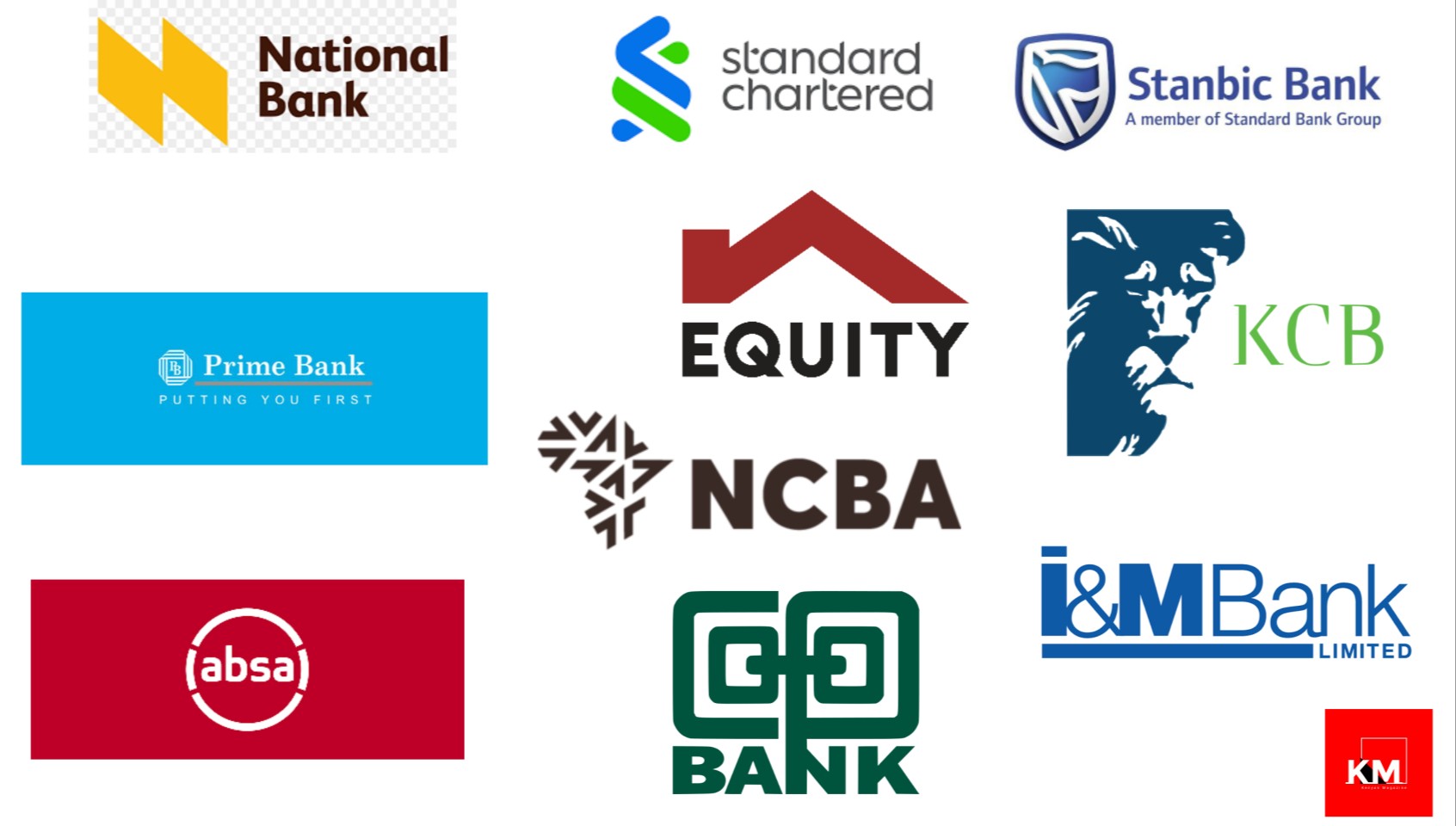Demystifying Loans and Credit Ratings in Kenya: A Comprehensive Guide

In today’s fast-paced world, financial flexibility is a crucial aspect of achieving one’s dreams and ambitions. Whether you’re considering starting a business, purchasing a home, or even covering unexpected expenses, understanding loans and credit ratings in Kenya is paramount. In this comprehensive guide, we will unravel the complexities of the Kenyan financial landscape, offering you invaluable insights into loans, credit ratings, and how to navigate this terrain effectively.
Understanding Credit Ratings in Kenya
What is a Credit Rating?
A credit rating is a numerical representation of your creditworthiness. In Kenya, credit bureaus such as Creditinfo and Metropol compile credit reports that reflect your financial behavior. These reports are used by lenders to assess your creditworthiness when you apply for a loan. A higher credit score indicates lower risk for lenders and increases your chances of loan approval.
How is Credit Rating Calculated?
In Kenya, credit bureaus use various factors to calculate your credit score, including:
- Credit History: Your track record of repaying loans and bills on time.
- Credit Utilization: The ratio of your outstanding debt to your credit limit.
- Length of Credit History: The duration of your credit accounts.
- New Credit: Recent credit applications and accounts opened.
- Types of Credit: The mix of credit, including credit cards, loans, and mortgages.
The Importance of a Good Credit Rating
A good credit rating is your passport to financial opportunities. It enables you to access loans at favorable interest rates, negotiate better terms, and even secure employment in some cases. Maintaining a positive credit rating should be a top financial priority.
Types of Loans in Kenya
In Kenya, a wide array of loans is available to cater to various financial needs. Let’s explore some of the most common ones:
1. Personal Loans
Personal loans are versatile and can be used for almost anything, from covering medical bills to financing a wedding. They are typically unsecured, meaning you don’t need collateral, but interest rates can vary.
2. Business Loans
Entrepreneurs can access business loans to start or expand their enterprises. The Kenyan government and financial institutions offer specific products tailored to small and medium-sized enterprises (SMEs).
3. Home Loans (Mortgages)
If you dream of home ownership, mortgages are your key. These loans enable you to buy property, and the property itself often serves as collateral.
4. Asset Finance Loans
Asset finance loans are ideal for acquiring vehicles, machinery, or equipment for your business. They are secured by the asset itself.
Comparing Loan Options in Kenya
Choosing the right loan is crucial to ensure it aligns with your financial goals and budget. When comparing loan options in Kenya, consider the following factors:
- Interest Rates: Different lenders offer varying interest rates. Shop around for the best deal.
- Loan Amount: Ensure the loan amount meets your needs.
- Repayment Terms: Longer terms might offer lower monthly payments but can cost more over time due to interest.
- Eligibility Criteria: Understand the lender’s requirements regarding income, credit score
Interest Rates:
Interest rates can significantly impact the overall cost of a loan. Different lenders may offer varying rates. It’s advisable to shop around for the best deal. A slightly lower interest rate can translate into substantial savings over the life of a loan.
Loan Amount:
Consider the loan amount you require carefully. Ensure it aligns with your financial needs, whether it’s funding your child’s education, renovating your home, or expanding your business. Be cautious not to borrow more than you can comfortably repay.
Repayment Terms:
Repayment terms dictate how long you’ll be paying off the loan. Longer terms often result in lower monthly payments but can cost you more in interest over time. Shorter terms might have higher monthly payments but can save you money on interest in the long run. Evaluate which term suits your financial situation.
Eligibility Criteria:
Different lenders have varying eligibility criteria. They consider factors like income, credit score, and collateral. Before applying for a loan, understand the lender’s requirements and ensure you meet them. Being well-prepared increases your chances of approval.
Improving Your Credit Rating

Your credit rating is not set in stone. You can take proactive steps to enhance it:
Pay Bills on Time:
One of the most crucial aspects of improving your credit rating is making timely bill payments. Consistently paying your bills, such as loans, credit card balances, and utility bills, on or before the due date demonstrates your reliability to creditors.
Reduce Outstanding Debt:
High levels of debt relative to your credit limit can negatively affect your credit score. Focus on reducing your credit card balances and other outstanding debts. Aim to keep your credit utilization ratio low, ideally below 30%.
Monitor Your Credit Report:
Regularly check your credit report for errors or inaccuracies. If you spot any discrepancies, dispute them with the credit bureau. A clean and accurate credit report is essential for maintaining a healthy credit rating.
Diversify Your Credit Mix:
Having a mix of different types of credit accounts, such as credit cards, installment loans, and mortgages, can positively influence your credit score. However, only open new credit accounts when necessary and manage them responsibly.
Avoid Multiple Credit Applications:
Each time you apply for credit, it results in a hard inquiry on your credit report, which can temporarily lower your score. Avoid making multiple credit applications within a short period unless necessary.
Factors Affecting Loan Eligibility
Understanding the factors that influence loan eligibility in Kenya is crucial for securing the financing you need:
Income:
Lenders assess your income to determine your ability to repay a loan. Ensure that you can comfortably manage the loan repayments while covering your other financial obligations.
Employment Status:
Stable employment with a consistent income source enhances your eligibility for loans. Lenders typically prefer borrowers with a steady job history.
Credit History:
A positive credit history, reflected in your credit report, enhances your chances of loan approval. Maintain a record of responsible borrowing and timely repayments.
Collateral:
Secured loans require collateral as security. Collateral can include assets like property, vehicles, or savings accounts. Lenders may be more lenient with eligibility requirements for secured loans since they have collateral as a guarantee.
Secured vs. Unsecured Loans
When considering loans in Kenya, you’ll come across both secured and unsecured options. Let’s weigh the pros and cons:
Secured Loans:
- Pros: Lower interest rates, higher loan amounts, and longer repayment terms.
- Cons: Risk of losing collateral if you default on the loan.
Unsecured Loans:
- Pros: No collateral required, faster approval process.
- Cons: Typically higher interest rates, lower loan amounts, and shorter repayment terms.
Managing Debt Responsibly
Effectively managing debt is essential for your financial well-being. Here are some additional tips:
Create a Budget:
Develop a comprehensive budget that outlines your monthly income and expenses. This helps you track your spending, prioritize debt repayments, and avoid overspending.
Build an Emergency Fund:
Having an emergency fund with at least three to six months’ worth of living expenses can provide a financial safety net, helping you avoid accumulating more debt in times of unexpected financial hardship.
Seek Financial Advice:
If you find yourself overwhelmed by debt, consider seeking the assistance of a financial advisor. They can help you create a debt management plan tailored to your unique situation.
Additional Resources
To further support your journey towards financial empowerment in Kenya, here are some additional resources and tips:
- Credit Bureaus: Stay informed about your credit status by regularly checking your credit report with bureaus like Creditinfo and Metropol. Monitoring your credit report allows you to spot errors and take corrective action promptly.
- Financial Education: Invest time in improving your financial literacy. Numerous online courses, books, and workshops are available to help you gain a better understanding of personal finance, budgeting, and investment.
- Financial Advisors: Consider consulting a qualified financial advisor who can provide personalized guidance based on your unique financial situation and goals. They can help you create a tailored financial plan and make informed decisions.
- Government Programs: Explore government initiatives and programs aimed at supporting Kenyan businesses and individuals. These programs often offer favorable loan terms and financial assistance.
- Loan Comparison Tools: Utilize online loan comparison tools and calculators to assess the affordability of different loan options. These tools can help you visualize the impact of interest rates and repayment terms on your budget.
- Debt Consolidation: If you’re struggling with multiple debts, debt consolidation may be an option. This involves taking out a single loan to pay off all existing debts, simplifying your financial obligations.
Navigating the world of loans and credit ratings in Kenya can be complex, but with knowledge and careful planning, you can make informed financial decisions that pave the way for a secure and prosperous future.
Remember, financial stability is a journey, not a destination. Continue to educate yourself, practice responsible financial management, and always seek professional advice when needed. By doing so, you can build a strong financial foundation that will serve you well throughout your life.
Empower yourself with knowledge, take control of your financial destiny, and watch your dreams become a reality.
Final Thoughts
Loans and credit ratings in Kenya are integral components of your financial journey. By comparing loan options, improving your credit rating, understanding the factors affecting loan eligibility, and choosing between secured and unsecured loans wisely, you can make informed decisions to secure your financial future.
Remember that responsible financial management, combined with knowledge and careful planning, can empower you to achieve your financial goals. Your financial success is within reach, and your journey begins with informed choices and responsible financial behavior.
For more expert guidance on a wide range of financial topics, visit Muiruri & Associates. We’re here to support you on your path to financial prosperity.












